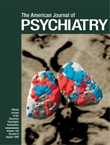The Professor and the Madman: A Tale of Murder, Insanity, and the Making of the Oxford English Dictionary
For a psychiatrist, nonmedical books about psychiatric illness can be particularly painful. The amount of misinformation is astounding, and the result is often an unfortunate dissemination of opinions masquerading as absolute fact. As a result, we are hindered in our already difficult task of fostering public empathy and understanding for an increasingly disenfranchised population. However, Simon Winchester’s The Professor and the Madman is a wonderful exception to the rule.
Mr. Winchester has written a fascinating account of a physician with schizophrenia and his voluminous contributions to the Oxford English Dictionary. As the story unfolds, we learn that in 1872, an American Civil War surgeon named Dr. William Minor shot and killed an innocent passerby in working-class London. As it was immediately apparent to the British authorities that Dr. Minor was gripped with a long history of at times murderous delusions, he was sentenced to the British Asylum for the Criminally Insane “until her majesty’s pleasure be known.”
By coincidence, Minor’s sentencing roughly coincided with the beginnings of the Oxford English Dictionary, the monumental work that intended to list and etymologically explore the origins of every English word in existence. The editors of the Oxford English Dictionary recognized that they could not on their own accomplish such lofty aspirations and appealed to the public for assistance. Dr. Minor heard of their appeal and seized upon the opportunity to effect a kind of redemption through scholarship. This is not to say that such scholarship was curative. Dr. Minor remained quite ill, and Mr. Winchester is to be commended for his sensitive portrayal of both the benefits and limits to intellectual pursuits in the context of severe mental illness.
In fact, in telling Dr. Minor’s story, Mr. Winchester manages to describe a very disturbed and at the same time altogether human character. Dr. Minor’s upbringing and developmental history are exhaustively explored, and the description of Dr. Minor is given with a refreshing combination of curiosity and genuine respect. For example, according to Dr. Minor’s medical records, he began to suffer a preoccupation with what he called “lascivious thoughts” at the age of 13, while he was residing in Ceylon with his missionary parents. Mr. Winchester muses that the Ceylonese girls who commanded Dr. Minor’s attention must have “seemed a rare constant in a shifting, inconstant life.” Similarly, in describing the horrors that Dr. Minor witnessed during his Civil War tenure, Mr. Winchester postulates that Dr. Minor’s awful wartime duty of cattle-branding deserters with a scarred letter D psychologically unhinged and angered the young physician. “Was this,” Mr. Winchester imagines Dr. Minor to have thought, “truly permitted under the terms of the Hippocratic oath?”
Thus, we are presented with a compelling series of seminal life events in the context of slowly emerging psychiatric illness. Dr. Minor “began to harbor suspicions about his fellow soldiers,” fearing that they were constantly “muttering about him…goading him, persecuting him.” Eventually, Dr. Minor dropped out of medicine and became enveloped by his paranoia and delusions. In telling this story, Mr. Winchester nicely describes a familiar tragic decline entirely consistent with paranoid schizophrenia. His attention to the details of Dr. Minor’s life also engages the reader in an important and time-honored psychiatric debate: To what extent do severe stressful events become precipitants for eventual psychosis? How can we reconcile Dr. Minor’s obvious intellectual prowess with his stubborn refusal to examine his paranoia rationally? And are we prepared as a culture to forgive a madman’s horrible crimes if they are committed in the context of his delusions? “Can it ever be said,” Mr. Winchester asks, “that a major psychological illness like schizophrenia, with its severe disruption of the brain’s chemistry, appearance and function, truly has a cause?”
As a nonpsychiatrist, Mr. Winchester brings a freshness to this debate, and the fact that the story features triumph as well as tragedy makes the debate seem even more important. “The Victorians,” Mr. Winchester notes, approached insanity with “their characteristic mix of severity and enlightenment.” Dr. Minor was definitely confined to a psychiatric prison, but within his prison he enjoyed an extensive and self-purchased library, time for afternoon tea, and the assistance of fellow patients whom he employed as servants. He could participate in intellectual pursuits, and, incredibly, he formed a friendship with the widow of the man he murdered. One can feel Mr. Winchester’s perplexity as he writes of Dr. Minor’s accomplishments and at the same time ponders the fact that Dr. Minor “remained profoundly and irreversibly mad.”
This perplexity becomes almost personal in his description of Dr. Minor’s friendship with James Murray, the chief editor of the Oxford English Dictionary. Mr. Murray wrote,
So enormous have been Dr. Minor’s contributions during the past 17 or 18 years, that we could easily illustrate the last 4 centuries from his quotations alone.
Mr. Winchester seems to be marveling at the serendipity in the fact that Murray and Minor would meet and collaborate, while at the same time lamenting the tragedy that prevented a closer and even richer intellectual exchange. Thus, we are treated historically to one of the central challenges in psychiatry. Just as we must appreciate our patients’ accomplishments and at the same time endure and empathize with their limitations, so must Mr. Winchester find solace and even reason for celebration in the fascinating achievements of an extremely ill individual.
Mr. Winchester tells his story with compassion, intelligence, and humor. Perhaps most important, the story is ultimately optimistic. For patients and physicians alike, The Professor and the Madman accomplishes the very difficult task of reminding the reader of the possibilities that persist in spite of formidable obstacles.



